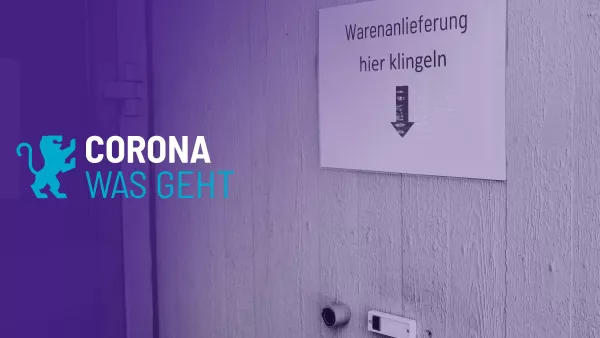
RWU does not stand still even in these extraordinary days and weeks. In many places new solutions are being worked on with commitment and creativity. With the series "Corona - What's up", we want to focus not only on what is currently not possible, but especially on what's up.
Who actually looks after the many buildings on the RWU campus when almost everyone is in their home office? What about the post office, the workshops or the home print shop? Questions for Tillmann Pfaue, the head of Technical Operations at RWU.
Christoph Oldenkotte: When and how did the corona crisis reach the technical department?
Tillmann Pfaue: For us it started with the order for 150 litres of disinfectant at the beginning of March. By then the wall dispensers were no longer available. For the dispensers that we still received, the caretakers built wall brackets themselves and installed them at all building entrances.
And, but from today's point of view this is rather a funny coincidence, we ordered another pallet of toilet paper, because the semester was supposed to start on March 16th.
What other safety precautions were taken?
We built our own spit guards from plexiglass and wood for the offices where there is a lot of customer traffic, for example in the student service.
Finally, the start of the semester was postponed and as much work as possible was to be moved to the home office. What consequences did this have for the technical department?
In the technical operations office there are two colleagues in the home office. Otherwise, home office is only possible to a limited extent. The caretaker team cannot work from home. The mail room is also running regularly. We are always on site with reduced staffing.
We try to reduce the procurements to what is necessary. Also to avoid payment delays, as many employees who would have to receive goods are not in the house.
Then came the decision that the buildings are only accessible with a key.
I perceived this as a positive step. It has significantly increased the employees' sense of security. We have thus created a controllable area. This helped to ease the situation when uncertainty was relatively high.
What concrete effects does it have on the work in the technical department that the buildings are no longer accessible to the public?
We have cancelled some of the planned maintenance work. Admittedly, the time could now be put to good use. But it was a contradiction for us to close the buildings for public transport on the one hand, and to bring many craftsmen into the building on the other. So we limited it to the necessary repairs.
But keeping the buildings running was no problem. We have carried out many preventive measures in recent years, which means that our facilities are in good shape.
How would you describe the current situation for your area?
The situation is unusual, but it has levelled off. For us it is now more of a quiet time. Our colleagues in the computer centre or in the didactics department are certainly under more stress at the moment.
At the beginning we were overwhelmed by developments. That was exhausting. In the meantime, we can also work on things that have been left behind for a long time.
We don't have a gate here in the main building. How can you make sure that all deliveries arrive?
When the buildings were closed to the public, we quickly got a radio bell and installed it. Since we travel a lot around the building, it's in the foyer now and has a slightly odd ring tone. So when the panflute sounds in the main building, it means that someone wants to deliver a package.